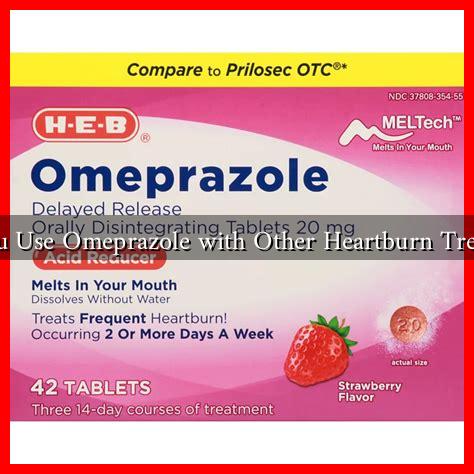-
Table of Contents
Can You Use Omeprazole with Other Heartburn Treatments?
Heartburn, a common digestive issue, affects millions of people worldwide. It occurs when stomach acid flows back into the esophagus, causing discomfort and a burning sensation. Omeprazole, a proton pump inhibitor (PPI), is one of the most widely prescribed medications for managing heartburn and gastroesophageal reflux disease (GERD). However, many patients wonder if they can safely combine omeprazole with other heartburn treatments. This article explores the compatibility of omeprazole with various heartburn remedies, potential interactions, and best practices for effective management.
Understanding Omeprazole
Omeprazole works by inhibiting the proton pumps in the stomach lining, reducing the production of stomach acid. It is effective for treating conditions like:
- GERD
- Peptic ulcers
- Esophagitis
- Zollinger-Ellison syndrome
While omeprazole is effective, it is essential to understand how it interacts with other heartburn treatments.
Common Heartburn Treatments
Heartburn can be managed through various treatments, including:
- Antacids (e.g., Tums, Rolaids)
- H2-receptor antagonists (e.g., ranitidine, famotidine)
- Prokinetics (e.g., metoclopramide)
- Natural remedies (e.g., ginger, chamomile)
Each of these treatments has its mechanism of action and potential benefits. Understanding how they interact with omeprazole is crucial for safe and effective use.
Combining Omeprazole with Other Treatments
When considering the combination of omeprazole with other heartburn treatments, it is essential to evaluate their compatibility:
1. Antacids
Antacids neutralize stomach acid and provide quick relief from heartburn symptoms. They can be taken alongside omeprazole, but timing is crucial. It is recommended to take antacids at least two hours apart from omeprazole to avoid interference with absorption.
2. H2-Receptor Antagonists
H2-receptor antagonists, such as ranitidine and famotidine, reduce stomach acid production but work differently than PPIs. While some healthcare providers may prescribe them together for severe cases, it is generally not recommended due to the potential for increased side effects and diminished effectiveness of both medications.
3. Prokinetics
Prokinetics help improve gastric emptying and reduce reflux. They can be used with omeprazole, but patients should consult their healthcare provider to ensure the combination is appropriate for their specific condition.
4. Natural Remedies
Natural remedies like ginger and chamomile can be beneficial for some individuals. These remedies are generally safe to use with omeprazole, but it is advisable to discuss any natural treatments with a healthcare professional to avoid potential interactions.
Potential Risks and Considerations
While combining treatments can be effective, there are potential risks to consider:
- Increased risk of side effects: Combining medications can lead to heightened side effects, such as gastrointestinal issues.
- Reduced effectiveness: Some medications may counteract each other, leading to inadequate symptom control.
- Long-term use concerns: Prolonged use of PPIs like omeprazole has been linked to potential health risks, including kidney disease and bone fractures.
Patients should always consult their healthcare provider before starting or combining treatments to ensure safety and efficacy.
Conclusion
In summary, omeprazole can be used with certain heartburn treatments, but caution is necessary. Antacids can be safely combined with omeprazole, while H2-receptor antagonists should generally be avoided together. Prokinetics and natural remedies may also be used, but it is essential to consult a healthcare professional for personalized advice. Understanding the interactions and potential risks associated with these medications can help individuals manage their heartburn effectively and safely.
For more information on heartburn treatments and management, consider visiting the Mayo Clinic.

